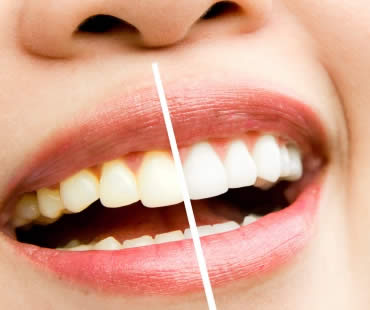
Jul 31, 2025 | Blog, Dental Topics 5, Family Dentistry
Every member of your family deserves and requires quality oral healthcare. From the youngest to the oldest, regular dental visits are essential. This is where a family dentist plays a key role. Family dentists treat patients of all ages and handle a wide range of conditions, offering personalized treatments to ensure healthy, beautiful smiles for your entire family.
Choosing the right family dentist:
Not all family dentists are the same. Since choosing a family dentist is a long-term decision, it’s important to select one who meets all your needs. Look for a practice with convenient hours and location, a clean and comfortable environment, and the necessary credentials to handle all aspects of your dental care.
Comprehensive dental care:
Family dentists focus on the hygiene and health of your smile, providing a wide array of services, including thorough exams, regular cleanings, fluoride treatments, gum disease therapy, cavity diagnosis and treatment, and even orthodontic care.
Care for every stage of life:
One of the advantages of family dentistry is that it addresses the unique dental needs of every age group. Children face different dental challenges than their parents or grandparents. Skilled family dentists provide complete oral care, from baby teeth to permanent teeth and restorations for seniors.
Addressing dental fears:
Family dentists are also skilled in recognizing and managing dental anxiety in patients of all ages. Children, for instance, may feel fearful due to the unfamiliar environment and equipment, but family dentists are trained to ease these fears with kindness and gentle care. Many offer distractions such as videos, music, and books to help calm young patients. The goal of family dentistry is to help children develop a positive attitude toward dental visits. Dental anxiety isn’t limited to children, however, so family dentists are also adept at helping adults overcome their fears, ensuring a comfortable experience.
No matter the age or dental needs of your family members, family dentists are qualified to provide the necessary care with skill and confidence.
Do not let another day go by without taking care of your dental needs. Request an appointment now at our Bingham Farms dental office!

Jul 24, 2025 | Blog, Dental Topics 5, Veneers
Porcelain dental veneers are among the most popular options for transforming your smile. These veneers can achieve dramatic and stunning results, not only enhancing the aesthetic appearance of your smile but also boosting your self-confidence. Years of self-consciousness related to smile insecurities often fade away, leaving you feeling confident to smile, talk, and eat in public.
Dental veneers are primarily used on the most visible teeth—the front ones. Only a very small amount of the natural tooth is ground away to make room for the veneers, ensuring they do not appear overly thick or unnatural. A dental lab will create custom veneers from molds, using special techniques to craft veneers that perfectly match the desired tooth shade. Once placed, the veneers are designed to mimic natural, beautiful, white teeth, resulting in a vibrant and confident smile.
Porcelain veneers are a simple and risk-free solution for correcting chipped, gapped, crooked, or stained teeth. Short teeth can be lengthened, and “gummy” smiles can be corrected. Many patients who have suffered for years with dental issues they believed would require major work are surprised to find that these problems can often be addressed quickly and easily with porcelain veneers.
If you’re considering a smile makeover, it’s important to do your research. Cosmetic dentistry is not a legally separate specialty, and many dentists claim to specialize in it without truly understanding the artistry and attention to detail required to design a beautiful smile.
Ask potential dentists for photographs of before and after patient results. Talk to friends or family for personal recommendations—you might be surprised how many people with what seem like naturally perfect smiles have actually had a smile makeover using dental veneers.
Don’t wait to experience the benefits of porcelain veneers and a smile makeover. Consult with your cosmetic dentist today to discover the options available to you in order to achieve your smile goals.
Do you live in Bingham Farms or the surrounding area? Our team is ready to help you achieve your smile goals. Schedule your appointment today.

Jul 17, 2025 | Blog, Dental Information, Dental Topics 5
Gum disease, or gingivitis, can cause significant inflammation, pain, and sensitivity, making everyday activities like eating and speaking challenging. Understanding the causes and potential consequences of gum disease is essential for preventing its development or catching it early before it leads to more severe problems.
What Causes Gingivitis?
The primary cause of gingivitis is plaque buildup, but several other factors can contribute to the condition:
- Illnesses: Diseases such as HIV, diabetes, and cancer can weaken the immune system, increasing the risk of gingivitis.
- Hormonal Changes: Pregnancy, menstruation, puberty, and menopause can alter hormone levels, making gums more vulnerable.
- Medications: Some medications, such as those affecting saliva production or promoting abnormal gum tissue growth, can harm oral health.
- Smoking: Tobacco use can impair gum healing and make it harder to recover from gum disease.
- Poor Dental Hygiene: Failing to brush and floss properly, or neglecting oral care, can lead to plaque buildup.
- Genetics: A family history of gum disease can increase your risk.
Symptoms of Gingivitis
Gingivitis can develop without obvious symptoms, even in its later stages. However, some warning signs may include:
- Bleeding, red, or swollen gums
- Chronic bad breath
- Receding gums
- Deep pockets between teeth and gums
- Loose or shifting teeth
- Changes in bite or how teeth fit together
Regular checkups are vital, as a dentist can detect symptoms even before you do.
Treatment for Gingivitis
The treatment approach depends on the stage of gum disease, your response to previous treatments, and your overall health. Treatments range from therapies to control bacterial growth to surgical procedures aimed at restoring gum tissue. In many cases, gingivitis can be managed with regular dental visits and good dental hygiene.
What Happens if Gingivitis Is Left Untreated?
If left untreated, gingivitis can progress to periodontitis, causing permanent damage to the gums and supporting structures. Advanced gum disease has also been linked to serious health issues like stroke, heart disease, rheumatoid arthritis, and complications of diabetes.
Ready to transform your smile? Schedule your appointment today at our Bingham Farms dental office.

Jul 10, 2025 | Blog, Dental Information, Dental Topics 3
Having a teenager can be challenging. They have school work, multiple activities, and attitudes. This hectic time in life can also impact your teen’s dental health. Proper care and good oral hygiene will make sure that your teenager enjoys a lifetime of vibrant smiles.
• Encourage your teen to brush after each meal. Remind your son or daughter about the importance of flossing to remove plaque and promote gum health.
• Explain the consequences of not caring for your teeth, which can include bad breath, stains, and cavities.
• Make sure you stock up on the necessary supplies so that your teen has the right tools on hand. Purchase plenty of fluoride toothpaste, dental floss, and extra toothbrushes.
• Schedule regular checkups with the dentist. These appointments allow the dentist to assess your teen’s oral health and handle any problems right away.
• If your son or daughter has braces, get floss threaders from the orthodontist or buy them at the local drug store. Keep up with appointments for adjustments so that your teen’s treatment stays on track.
• For teens that play contact sports, including soccer, football, or volleyball, ask your dentist or orthodontist about a custom mouth guard. This oral appliance is designed to protect their teeth and mouth from potential injury.
• Limit your teen’s consumption of junk food by having health snacks like vegetables, fruits, and low fat dairy options readily available.
• Model good behavior. Showing that you believe oral health care matters will help your teen take your advice and warnings to heart.
Are dental issues holding you back? Take control of your oral health by booking an appointment with our experienced team at our Bingham Farms dental office.

Jul 3, 2025 | Blog, Dental Topics 3, Implant Dentistry
Dental implants are an option for people who have lost a tooth or teeth due to decay or damage. With implants, an artificial tooth root is placed into your jawbone to provide support for crowns and dentures. When considering implant treatment, you may have some of the following questions and concerns:
- Who is a candidate for dental implants? Implants can be placed in almost anyone after adolescence or when bone growth has completed.
- Is implant surgery painful? No, implant treatment is usually performed under local anesthesia in your dentist’s office.
- How long does it take to place dental implants? Depending on the number of implants placed, the procedure can usually be completed in less than an hour.
- What kind of recovery can I expect after a dental implant procedure? Healing from implant surgery is usually quick and uneventful. Any pain or discomfort should be minimal and easily controlled with anti-inflammatory medication. Most patients can return to normal activity the next day.
- How long will it take before I receive my new teeth? Because the implants need time to fuse to the bone, the entire process can take up to six months. Typically, you will receive some form of temporary teeth during this period. Treatment time varies depending on your treatment needs.
- Is caring for my implants difficult? Caring for your dental implants is the same as caring for your natural teeth. Implants simply require consistent brushing and flossing and regular dental visits for routine cleanings.
- How long will my implants last? When cared for properly, dental implants should last for decades.
- Are dental implants safe? When used in qualified candidates, dental implants are an exceptionally low-risk restoration option.
In general, dental implants have a success rate of up to 98%. With proper care, implants can last a lifetime.
Ready to transform your smile? Schedule your appointment today at our Bingham Farms dental office.

Jun 26, 2025 | Blog, Cosmetic Dentistry, Dental Topics 3
Tetracycline is an antibiotic used to treat infection. While it works to fight certain illnesses, it can have a negative impact on your smile. If tetracycline is taken by pregnant women or by children while their teeth are still forming, the teeth will develop with dark stains. Usually, this medication produces brown or grayish discolorations that may cover all or part of the teeth.
People with tetracycline stains may feel self-conscious about their smiles. Your dentist can evaluate your case and discuss options for creating a gorgeous, new image. Treatments such as teeth whitening or porcelain veneers can remove stains and restore your smile.
In the past, teeth whitening was not a very effective therapy for tetracycline stains on teeth. Because the stains are intrinsic, which means they occur within the tooth, whitening didn’t always produce results. However, repeated chair side laser whitening sessions and deep bleaching products have worked in cases where the staining was not particularly dark.
The most common treatment with tetracycline stains is porcelain veneers. Made from thin shells of dental porcelain, veneers cover your teeth and produce a bright, white smile. Porcelain veneers are durable, stain-resistant, and designed to create naturally looking restorations.
With veneers, your doctor will first take impressions of your teeth to be sent to the dental lab that will handcraft your custom restorations. The dentist will then prepare the teeth for placement. Often, the dentist will place temporary veneers, which will give you a chance to preview your new look. Once the lab sends your permanent veneers to the office, you will need to return for minor adjustments and final placement.
Take the first step towards a confident smile. Contact our Bingham Farms dental office to schedule your consultation!






